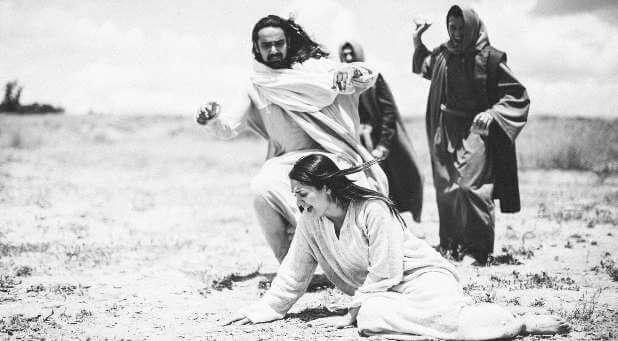“The Pharisees and certain scribes who came from Jerusalem gathered around Him. When they saw some of His disciples eat bread with defiled, that is, ritually unwashed hands, they found fault. For the Pharisees and all the Jews, unless they wash their hands ritually, do not eat, keeping the tradition of the elders. When they come from the market, unless they wash, they do not eat. And there are many other traditions which they have received and observe, such as the washing of cups and pitchers and bronze vessels and dining couches” (Mark 7:1-4, MEV).
What question would you ask Jesus if you had walked a hundred miles to get to Him? I doubt you would ask Him, “Why don’t Your disciples wash their hands before they eat?”
These religious leaders aren’t the only ones who ask the wrong question. I’ve seen it happen in the church.
I was once called upon to meet with a small group of people who were upset with a pastor’s decision. I drove 150 miles to meet with them. They were led by a long-time church member who is now in his 80s.
The church sanctuary sat about 1,000 people, but the congregation had dwindled down to about 100. They had been so divided that a new pastor was appointed to lead them, and the church, in the next two years, had grown to around 300. Good progress!
This group wanted me to listen to their grievance. I asked, “What’s the problem?”
Their elderly leader answered, “The pastor moved the church nursery without our permission.” The nursery had been at the back of the church and so many new families were coming that the pastor had wisely relocated the nursery near the front. This group was upset because they hadn’t been consulted.
Unfortunately, there are a lot of people like them who are more interested in their own agenda than in people coming to Christ.
So many conflicts in the body of Christ result not from division over doctrine, but division over preference.
We can be as bad as the Pharisees in picking the wrong issue!
The likes of the Pharisees and teachers of the Law have never gone away. There are still those today who look at the small things they deem wrong rather than the wonderful things God is doing! They nitpick at those who are doing the work of God because the way that work is being done doesn’t please them.
The Pharisees’ faultfinding with Jesus came at the very time the sick were being healed in villages, towns, and the countryside (see Mark 6:56). They should have rejoiced rather than criticized.
Mark takes time to explain the custom of hand-washing. His parenthetical aside shows us he is writing to a non-Jewish audience who wouldn’t be familiar with the customs of the Pharisees.
Is it wrong to wash your hands before you eat? By no means! There are hygienic reasons for that. We are careful in handling food lest we contaminate our body with unwanted germs. But the Pharisees had substituted a ritualistic legalism for matters that were best left to individual judgment. Jesus let His disciples violate these rules because such proscriptions had no bearing on one’s relationship with God.
Let’s not repeat their mistake. Jesus is more interested in clean hearts than clean hands.
A Prayer: “Lord Jesus, help me not to be a person whose initial tendency is to find fault with what someone else is doing. Help me first to look for the good, and if any fault remains, then grant me wisdom to know how to address it lovingly.”
Excerpted from Dr. Wood’s forthcoming book, Fearless: How Jesus Changes Everything, available in September from Vital Resources. George O. Wood is the general superintendent of the Assemblies of God. For the original article, visit georgeowood.com.












